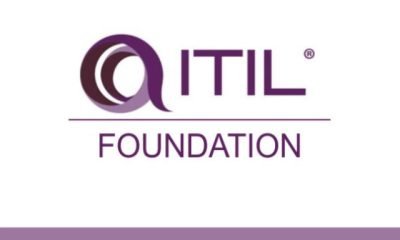Life Tips
How to Get Signed Up for the ACP Program, and What to Expect?


For those who are unaware, the ACP (Affordable Connectivity Program) is an FCC subsidy program designed to make telephone and broadband Internet services more affordable for low-income households. These households must meet specific eligibility requirements to be eligible.
Companies selected by the Federal Government to participate in this program and perform the necessary activities (installing phone and or Internet service at reduced rates) can receive reimbursement from the federal government.
At present, the ACP program is accepting applications for households to become eligible to participate in the program. There are two ways to receive support, depending on your location (some areas offer only one option).
- You can contact your local telephone service provider to sign up for phone service through the ACP. This process requires some due diligence by you as a consumer to ensure that your service provider participates and that you are eligible.
- You can sign up for broadband Internet service through the ACP. This option is available even if your telephone service provider doesn’t participate in the program (but you will not be eligible to receive phone support).
If you are interested in signing up, this article will explain how.
What is the Affordable Connectivity Program?
The ACP is a program that provides low-cost telephone and broadband Internet service to low-income households through subsidies to participating providers.
Participating providers install telephone and broadband Internet services at reduced rates, and the federal government later reimburses these providers for a portion of their expenses.
ACP also supports low-income households in choosing which providers will suit them best based on their particular needs.
How Can You Be Eligible for the Program?
You might be eligible for the ACP program if you meet all of the following criteria.
- You are a United States citizen or legal resident.
- Your total household income falls below 200 percent of the Federal poverty guidelines.
- Your home is in a specific local area served by a participating provider (or you are willing to switch your service).
- You meet the requirements for new telephone or broadband Internet customers at your selected provider (e.g., you provide appropriate identification, sign documentation required of new subscribers, etc.).
How is Eligibility Determined?
The FCC will determine your eligibility based on your answers to a questionnaire. This survey determines if you are eligible under each criterion. If you qualify, then your household will be enrolled in the program.
What is the Application Process?
Applying is a relatively straightforward process over the phone with a representative from an ACP-participating provider.
To ensure that you meet the eligibility criteria correctly, a representative will ask you several questions to ensure you are eligible for the program.
The entire process typically takes about 15 minutes and requires personal information (name, address, telephone number) to verify your eligibility.
There is no cost to apply for participation in the ACP (although participating providers might charge a fee).
What Happens after You are Enrolled?
After you are enrolled, a representative from your provider will schedule an installation of telephone and broadband Internet service.
Upon installation (and after the Federal Government has reimbursed the ACP program), you will be billed directly by the provider for the duration of your subscription with them.
Suppose you are receiving ACP support in the form of a credit on your monthly bills. In that case, this credit will remain in place for as long as you subscribe to the provider. If you leave for any reason, the distinction is forfeit.
Final Thoughts
If you have questions about signing up for ACP participation or eligibility, contact your local telephone or broadband provider. This article has provided information about the ACP. If you are eligible for this program, it might give you reduced telephone or broadband Internet service costs.


Life Tips
Strategies for Reducing Expenses During Financial Hardships


In times of financial hardship, managing expenses becomes paramount. Whether due to unexpected job loss, medical expenses, or economic downturns, finding effective ways to cut costs can provide much-needed relief. By adopting thoughtful strategies and making well-informed decisions, individuals and families can weather the storm and regain control over their financial well-being.
Prioritize and Streamline Monthly Budgets
Assessing your monthly budget is the first step toward identifying areas where expenses can be reduced. Begin by categorizing essential expenses such as housing, groceries, and healthcare. Trim discretionary spending like eating out and entertainment. Seek opportunities to renegotiate bills, such as refinancing loans or consolidating debt for better interest rates. Evaluating subscriptions and memberships is also crucial. Small changes, like cooking at home or canceling unused services, can collectively make a significant impact.
Moreover, cultivating a frugal mindset can lead to lasting financial resilience. Regularly reviewing your budget empowers you to stay on track and make adjustments as needed. As you implement these strategies, remember that the journey toward financial stability is a gradual process that requires patience and perseverance. By conscientiously managing your expenses and embracing a more intentional lifestyle, you’ll not only overcome current challenges but also build a solid foundation for a more secure and prosperous future.
Efficient Energy Consumption: Best Practices for Lower Bills
Reducing utility bills is a key aspect of expense management. One effective way to achieve this is by ensuring your home is energy-efficient. Upgrade to LED lighting, seal any air leaks, and properly insulate your living space. When it comes to electricity, research and compare providers to find the best rates on electricity in your area. Many utility companies offer different plans, so take advantage of options that align with your usage patterns. Simple habits like turning off lights when not in use and unplugging electronics can also contribute to substantial savings.
Rethink Transportation and Commuting
Transportation costs can put a strain on any budget. If possible, consider using public transportation or carpooling to reduce fuel and maintenance expenses. For those with multiple vehicles, consider if downsizing to a single car could be a viable option. Alternatively, explore the potential of remote work arrangements or flexible schedules to cut down on commuting costs. Additionally, walking or cycling for short distances not only saves money but also promotes a healthier lifestyle.
Creative Shopping and Economical Lifestyle Choices
Shopping mindfully is essential when striving to reduce expenses. Before making purchases, compare prices across different retailers and explore sales, discounts, and loyalty programs. Consider buying in bulk for items with longer shelf lives. Embrace a minimalist mindset and declutter your living space—you may find items you no longer need that can be sold or repurposed. Additionally, explore affordable hobbies and recreational activities that don’t put a strain on your wallet. Engaging in free community events or enjoying the great outdoors can provide entertainment without breaking the bank.
In times of financial hardship, focusing on reducing your expenses can alleviate stress and provide a sense of control over your financial situation. By reevaluating and streamlining budgets, making energy-efficient choices, rethinking transportation, and adopting economical shopping habits, individuals can make meaningful strides toward financial stability. Every small change adds up, and with determination, thoughtful decisions, and a proactive mindset, it’s possible to weather any financial challenges and emerge stronger on the other side.
Life Tips
Tips for First-Time Home Buyers


Buying a home for the first time, whether on your own, with a partner, as a family, or maybe just as an investment is a landmark moment in your life.
It is an exciting time that is for sure, but it can also be pretty daunting because of the lengthy list of considerations to make.
Right now it is a particularly fraught time for first-time buyers due to the cost of living crisis, with interest rates at 4.5 per cent as of May 2023.
It makes for testing times when applying for mortgages, let alone the cost of solicitors, surveyors, new furniture, and utility bills to think about.
So, what is the current state of the housing market and what can you do to get yourselves on the property ladder?
State of the housing market
With inflation rates in the UK staying stubbornly above 10 per cent, it is not an easy to time to be buying.
The average house price in the UK right now is around £288,000, around £16,000 more than it was in February 2022.
Indeed, the increase in average house prices year on year from February 2022 to 2023 was 5.5 per cent, down from 6.5 per cent in January 2023.
A property purchase boom occurred in 2021 due to the temporary cut to stamp duty, though levels have now returned to roughly what they were pre-pandemic.
With demand for houses falling, the property market has cooled – so for sellers there is not a great incentive, making it even more difficult for first-time buyers.
Handy tips for first-time buyers
But do not be totally discouraged. There will always be a demand for buying houses, and there will always be a need to sell. The traditional reasons for selling up such as death, divorce and relocating for jobs will always exist.
First of all, look into existing schemes that can help you get on the ladder such as Help to Buy ISAs and Help to Buy Equity loans.
Next, make sure you have your finances figured out. How much do you have for your deposit? Some lenders will accept a five per cent deposit for instance. But then consider what furniture you will need, and what new utility bills you will have to purchase.
Talk to mortgage advisors about the different types; variable, fixed, cashback, offset. See which one works best for your personal situation and get several mortgage quotes.
Think also about the type of property you need, how many bedrooms, detached or semi-detached, and be willing to widen your search area as you might find cheaper alternatives to your first choice.
You will need a good solicitor and a reliable conveyancer. Solicitor fees will be around the £1,000 to £1,500 mark but having a competent solicitor will help when issues around purchasing arise.
Lastly, get your head around all the extra costs you are about to take on, and save, save, save. Do you need to have that takeaway or extra cup of chain-brand coffee? Making the smaller sacrifices in the short term will help with your long-term goals.
Life Tips
How to Best Secure a Home Purchase in 2023


Buying a home can be daunting, especially if you are a first-time buyer. You want to ensure you can secure a home purchase. The process can be overwhelming and stressful, but with the right approach and knowledge, you can secure a home purchase in 2023 without hassle. Follow these essential steps to make your home-buying experience smooth and successful.
Get pre-approved for a mortgage
Getting pre-approved for a mortgage should be one of the first steps in securing a home purchase. The pre-approval process involves a lender reviewing your financial information to determine how much money they can lend you to purchase a home.
You’ll need to provide your lender with documentation such as income statements, tax returns, and bank statements. The lender will then assess your financial situation and determine how much they are willing to lend you for a mortgage.
Pre-approval gives you an idea of what you can afford and puts you in a better position to negotiate with sellers. It will also show sellers that you are a serious buyer ready to make an offer.
Work with a reputable real estate agent
A reputable real estate agent can help you find the perfect home and guide you through the entire buying process. They have the knowledge and expertise to help you navigate the housing market, negotiate prices, and meet all legal requirements. Look for an agent with a proven track record of success and positive reviews from previous clients.
Notarizing documents
One often-overlooked step in the home-buying process is notarizing important documents. You’ll need to find a licensed real estate notary public in your area to notarize a document.
Some important documents you should notarize during the home-buying process include the purchase agreement, mortgage, and closing documents. Notarizing these documents will help stop fraud and ensure everyone knows their duties and responsibilities.
Consider the home inspection
Once you’ve found a home you’re interested in purchasing, hiring a home inspector is essential. A home inspector can assess the home’s condition and identify any potential issues or repairs that may need to be made. The inspection will give you peace of mind and help you avoid costly repairs down the line.
If any issues are identified, you can negotiate with the seller to have repairs made or ask for a reduction in the purchase price to cover the cost of repairs.
Be prepared for closing costs
Closing costs are fees associated with finalizing the purchase of a home. They typically include expenses such as title insurance, appraisal fees, and legal fees. Be prepared to pay these costs in addition to your down payment and monthly mortgage payments.
Ensure you understand these costs and factor them into your budget when making an offer on a home. You can also negotiate with the seller to have them cover some or all of the closing costs as part of the purchase agreement.
Before you go
Securing a home purchase in 2023 requires careful planning, patience, and the right team of professionals to guide you through the process. By notarizing important documents, getting pre-approved for a mortgage, working with a real estate professional, hiring a home inspector, and understanding your closing costs, you can ensure that your home purchase is secure and a sound investment for your future. Following the essential steps outlined in this article, you can make your home-buying experience smooth, successful, and stress-free.



 Health11 months ago
Health11 months ago6 Best Ways to Get Quality Sleep



 Social Media11 months ago
Social Media11 months agoLinda Yaccarino: Twitter’s New CEO from NBCUniversal



 Work11 months ago
Work11 months agoFive Things Employees Look for in a Job Role



 shopping12 months ago
shopping12 months agoEssential Tips for Buying Jewelry Online



 Finance12 months ago
Finance12 months agoHow Can You Find Affordable Auto Insurance Using iSelect?



 Tech12 months ago
Tech12 months agoWhat Are the Advantages of ITIL Foundation Certification for Organizations?



 Education9 months ago
Education9 months ago7 Tips for Writing Short Stories That Captivate and Resonate



 Entertainment11 months ago
Entertainment11 months ago5 Famous Gamblers and Their Most Memorable Quotes




















